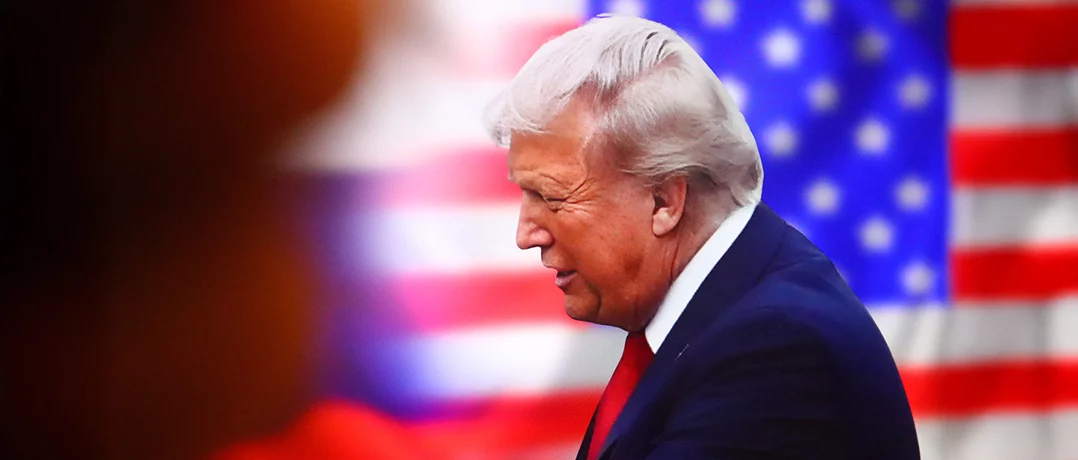Donald Trump is pursuing the 2025 Nobel Peace Prize to boost his legacy and image as a global peacemaker, despite controversy over his efforts.
Trump has his eyes on the 2025 Nobel Peace Prize
Trump has his eyes on the 2025 Nobel Peace Prize


Since his presidential campaign, Donald Trump has been on “achieving peace” around the world. Aside from seeking to garner essential support and votes in the presidential elections, which did actually occur to some extent, his ambition stems from his attempt to win the upcoming 2025 Nobel Peace Prize.
What is the Nobel Peace Prize?
The Nobel Prize was established by a Swedish businessman named Alfred Nobel; the first award to be given was in the year 1901. The aim, according to Alfred’s vision, was to establish a fund that could distribute prizes “to those who ... shall have conferred the greatest benefit on mankind”. This means that it should be awarded to the person or organization that has done the most to advance peace in the world; although this also encompasses efforts made in promoting democracy and curbing climate change.
Consequently, the international award is awarded by a committee selected by Norway’s parliament. This committee accepts nominations by any eligible nominators (including members of national assemblies, members of governments, members of international bodies like the International Court of Justice, college professors or directors and former prizewinners or members of the Nobel Committee) until January 31; but the committee does not publicly comment or endorse any of the nominees.
After the nomination process is completed, the 5-member committee chooses, based on specific and credible criteria, the winner and announces its decision in early October, before holding a formal ceremony in Oslo, Norway. This year, the 2025 winner of the Noble Peace Prize will be revealed on October 10, while the aforementioned ceremony will take place exactly one month after, on December 10.
Why is Trump aiming for the Nobel Peace Prize?
This year, over 330 candidates were nominated for the upcoming Nobel Peace Prize. However, one name stood out the most: US President Donald Trump. The latter has claimed to be the “president of peace”, boasting to have ended 7 wars during his speech at the 80th session of the United Nations General Assembly; although some of these conflicts are not fully settled and are a bit controversial (such as the “peace” between Iran and Israel, given Washington’s destabilizing role in the brief 12-day war).
The key drivers behind Trump’s unannounced push for winning the prize can be summarized under two main themes.
The first is fulfilling his electoral promises. Trump ran for the US presidential elections under the slogan of being a peacemaker. He vowed to end all wars, especially the ones started under the Biden administration’s term, as a means to attract as many voters and public support as possible for his reelection. For instance, Trump sent a letter to the Lebanese-American community during his campaign, on October 26, 2024, claiming that he aims to achieve not only “equal partnership among all Lebanese communities”, but most importantly a real and lasting peace in the Middle East. It is worth noting that Trump referred to the word “peace” 7 times, which signals his determination to pursue a comprehensive peace plan in the region once more. Winning the Noble Peace prize would thus confirm and acknowledge his “peace efforts”.
Secondly, Trump’s hopes to win the prize stem from personal considerations. It is well-known that Trump is a fierce competitor, always aiming to outperform and outdo his peers and opponents. Since some of his predecessors, Barack Obama, Jimmy Carter, Woodrow Wilson, Teddy Roosevelt and Al Gore, had already received the Nobel Peace Prize, Trump is determined not to be excluded from this “hall of fame”. Obama’s case is particularly controversial as he was awarded only 9 months into his first term in 2009, which was met with intense criticism (including from Trump himself). This is also driven by the US President’s constant focus on his public image and reputation. Trump even told United Nations delegates last month that “everyone says that I should get the Nobel Peace Prize”; although it is not possible for a person to nominate themselves.
Could Trump Actually Win the Nobel Peace Prize?
Expressing one’s desire and intent is one thing, however achieving it is another. There exist certain barriers that might hinder any attempts by Trump to receive the international honor he believes he deserves.
Firstly, as previously mentioned, many of Trump’s “peace deals” are controversial. Some of them are mere ad hoc agreements that can suddenly fall at any moment. This is true with regards to the conflicts between Israel, on the one hand, and Iran, Hamas and Hezbollah, on the other. In this regard, everyone still recalls the infamous case of Kissinger’s Nobel Peace Prize. In 1973, both US Secretary of State Henry Kissinger and Communist Party of Vietnam Politburo representative Le Duc Tho won the prize for their efforts in ending the Vietnam War. However, in 1975, the peace faltered as Communist North Vietnam invaded its southern counterpart and conquered the entire country; this prompted Kissinger to try and return the prize. This is significant since the committee charged with awarding the Peace Prize prioritizes sustained and enduring efforts and deals over quick diplomatic wins.
Secondly, the aforementioned committee is keen on avoiding any signal of international pressure regarding its decision. After the Obama dilemma and recent pressure from Trump and his supporters to win the award, the Norwegian committee will likely attempt to avoid being seen as caving in to political pressure in order to maintain credibility and independence.
Lastly, Trump has been vocally critical of multilateralism, as he prefers bilateral agreements. He has fiercely targeted the United Nations and suspended essential funding for multilateral efforts (including UNRWA and WHO). Given the committee’s focus on multilateral efforts with regard to global peace, the US President’s positions would likely be viewed negatively and with caution.


